Dr. Aarti Tobin
Science Lead, Just Meat Co
View profile
The AgriFutures and AgriFutures growᴬᴳ⋅ Catalyst program aims to support women in agrifood tech and innovation in Australia and New Zealand to strengthen their networks and capability within the ecosystem.
The Pathway to Diversity in STEM Review final recommendations report completed by the Australian Government Department for Industry Science, and Resources highlights that there are significant barriers to workplace participation in STEM including education, flexibility, and accessibility. Currently, women only represent 15% of the STEM workforce despite participation increasing by 68% since 2012.
The program has been designed to identify innovators with exceptional research or technology innovations ready for commercialisation and provide them with a platform to access the next stage of development.
Through Catalyst, six innovators will connect with strategic partners and investors during an exclusive event where they will pitch their innovations and engage with potential stakeholders.
The program is open to female researchers through to series A founders and co-founders with research, innovation and/or technology in agritech, agrifood tech, climate tech, supply chain and logistics or a similar sector related to agriculture. The six successful innovators will be provided with coaching to help formalise and craft their pitch for the event.
By participating in Catalyst, innovators will gain valuable connections, knowledge and funding or partnership opportunities. They also have the chance to showcase their innovations, engage with industry stakeholders, and contribute to the growth and development of Australian agriculture.
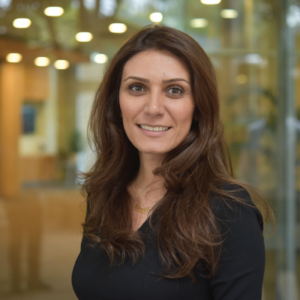
Group Leader, Bio-Inspired Materials Group, University of Queensland
View profile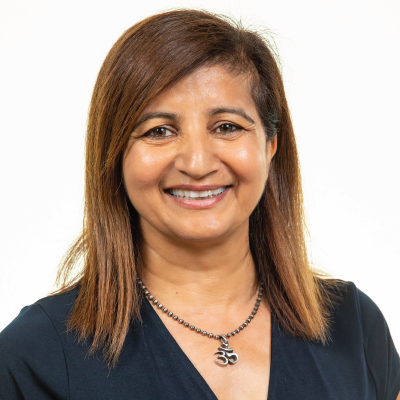
An accomplished researcher in the food innovation space, Dr Aarti Tobin is the Science Lead at Just Meat Co (JMC), a food ingredient company working to deliver bespoke protein solutions for the food and beverage industry.
Using a novel platform process, developed at CSIRO, JMC is working to develop a range of commercial ingredients that will boost the protein and key nutritional aspects of end products like protein powders used by high-performance athletes. Its first product is a high protein meat powder made from lower-value meat cuts. It is nutrient dense, highly soluble and digestible, allergen free, shelf-stable with a mild flavour. The novel manufacturing process creates an opportunity to convert low value meat products into high protein powders of different grades and to meet different needs. The protein powder can be integrated into sports drinks, foods, beverages and pet foods, giving it potential to become an integral part of the beef sector’s production and value.
In her role, Dr Tobin will lead the commercialisation of the company as a startup this year. Dr Tobin sees the Catalyst Program as an opportunity to expand her network within the startup ecosystem, connect with female founders, mentors and industry partners, and demonstrate how researchers can actively co-create innovation and drive meaningful impact in the industry.
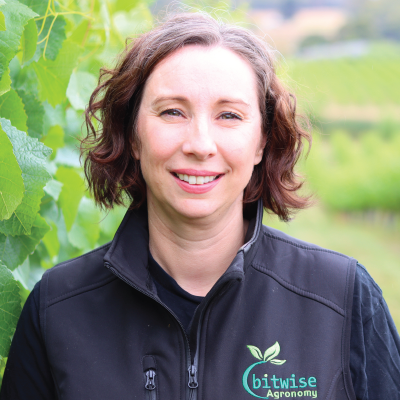
After returning to the farm in 2017, Fiona identified issues with the dataset and available software that were supposed to help her manage her crops.
Bitwise Agronomy brings farming together with modern technologies like AI and machine learning to turn data into information for making decisions, so farms can improve forecasting, reduce operating costs and increase the gross margin. Bitwise Agronomy’s agtech solution, called GreenView, uses AI to analyse video footage from crops to accurately forecast yield and help guide management decisions. The improved accuracy of yield forecasting feeds into, and improves, the whole supply chain by giving price stability for growers, distributors and consumers. GreenView currently works with strawberries, blueberries, raspberries, blackberries, wine grapes, table grapes, and snacking cucumbers.
For Fiona, the number of female-specific programs like Catalyst is limited and the challenges females in the ag and deep tech space face in knocking down barriers and getting in front of investors and partners are significant. Rural locations can also inherently make networking difficult, and with the investment market facing headwinds Fiona sees great benefit in being able to receive guidance around honing her pitch and market approach. Through the Catalyst Program, Fiona hopes to build professional networks and tap into a cohort of other women in agtech who are at similar stages in their innovation journeys.
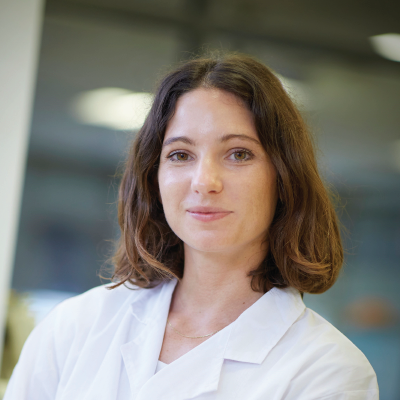
As Chief Technology Officer at HydGene Renewables, Dr Kerstin Petroll is a young STEM graduate at the forefront of developing the startup.
HydGene Renewables’ proprietary hydrogen biocatalyst enables the on-site conversion of diverse feedstocks, including those from agriculture and forestry, into 100% renewable, carbon negative hydrogen, minimising the need for transportation and storage. The technology addresses the issue of agricultural waste residues, which account for a significant portion of emissions and landfill contributions. It value-adds and promotes a circular economy by turning these waste biomass residues into clean chemicals and energy. The green hydrogen product can also be used to reduce emissions in synthetic ammonia fertiliser production, contributing to the diverse mix of solutions needed to combat climate change and make farming practices more sustainable. The HydGene Renewables biocatalyst technology is robust, and able to make hydrogen continuously for many months using waste streams that are typically toxic to other bio-based solutions.
Dr Petroll sees the Catalyst Program as an opportunity for both HydGene Renewables and her own personal career aspirations. She aspires to become a prominent female leader in a STEM-focused business and promote diversity in the workplace and help guide future STEM professionals.
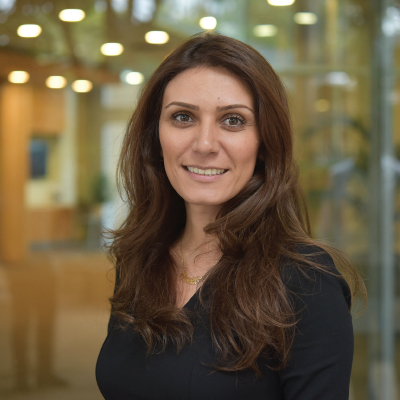
As group leader of the Bio-Inspired Materials Group (The Group) within the University of Queensland, Dr Nasim Amiralian’s world-leading research targets the significant challenge of the global plastic packaging and agricultural waste issues.
The Group has developed a fully bio-based and biodegradable lignocellulosic bioplastic from sugarcane trash and demonstrated its effectiveness as packaging materials. The bioplastic uses a single-step, cost-effective, and environmentally friendly method which enhances productivity and significantly improves the mechanical properties crucial for the paper-based packaging industry. The material also has high barrier properties against oxygen, oil, and water, helping it extend the shelf-life of fresh foods. By eliminating petrochemical and synthetic barrier coatings, this technology increases biodegradability and environmental safety. It can be compostable or recycled alongside commercially available fibre packaging (e.g. cardboard boxes) and significantly improves their strength.
Dr Amiralian sees the Catalyst Program as a key step to helping achieve the goal of establishing a national, state of the art facility dedicated to cutting-edge research and development of novel biomaterials using materials derived from agricultural waste. It’s an initiative she hopes could expand industry capacity through programs like industry-linked PhDs, while creating opportunities to attract, train and retain early and mid-career researchers to drive innovation and sustainable growth of the sector.
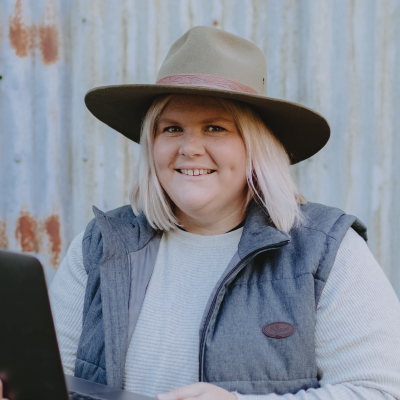
Nikki Davey is a Glenmore-based flower farmer, tech entrepreneur and co-founder of Grown Not Flown, a digital ecosystem designed to make it easy for growers to connect with diverse markets, manage online sales and communicate with consumers.
Designed to connect local farmers, local communities, and local economies, Grown Not Flown aims to serve as a farmers’ market in your pocket. It works as an easy-to-use platform, like an Etsy for produce. It is completely self-managed and removes the need for growers to build and manage their websites. Grown Not Flown provides users with an aggregated view of local flower farmers and producers, making it easy to search, source and purchase seasonal, locally grown goods. This first of its kind platform also provides industry wide insights and data that have been largely unavailable to this point. Grown Not Flown recently expanded to service other small-scale growers and launched its GYM membership which provides an online masterclass subscription to help users improve their business practices and performance and grow their business acumen.
For co-founder and CEO Nikki Davey, the Catalyst Program will provide a valuable opportunity to reach new audiences, connect with the broader ecosystem and gain insightful and tailored feedback on the product, pitch and strategy.
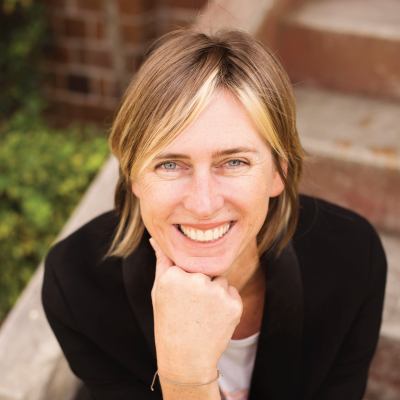
Sam Sneddon is an experienced entrepreneur and sustainability leader, and CEO of WollemAI, the first AI and machine learning solution that measures and reports on emissions from land and agriculture including emissions from land use change.
Agriculture is an essential sector in the push to reach emissions reductions targets, but accurate, consistent measurement of emissions from land and agriculture at scale remains difficult. WollemAI is a software as a service (SaaS) solution that allows real-time, verifiable analysis of any investment or loan exposure to land or agriculture. Integrating public and private data sets, WollemAI applies its proprietary emissions factors to deliver accurate and actionable audit grade emissions and physical risk metrics at a hyper local level. Where customer data has gaps, machine learning and AI are applied to fill those gaps with predictive modelling, and results are updated automatically in real time as data changes.
Sam sees the Catalyst program as an opportunity to accelerate WollemAI’s commercialisation objectives, including ambitions to expand into the United States and Brazil via its beef cattle methodology. Through the Catalyst Program, she is excited to learn professionally and personally from individuals who have experienced the trials and tribulations of building, growing, and taking an idea or business global.
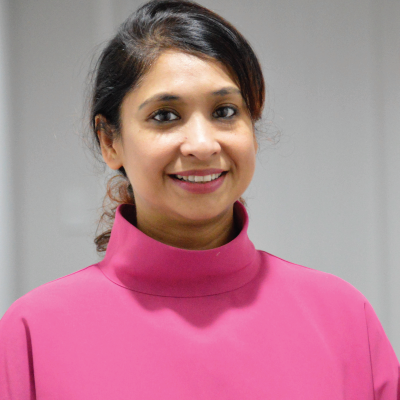
As a Senior Scientist with AgResearch, New Zealand, Dr Tanushree B Gupta is leading a team working on reducing incidences of facial eczema in livestock.
Global warming is expected to exacerbate the prevalence of facial eczema, and current interventions include harmful substances which are toxic to the environment. Facial eczema, caused by a fungus found in decaying plant matter, is a substantial economic burden for New Zealand and Australian agriculture, resulting in losses in the hundreds of millions dollars each year. AgResearch is currently focused on eradicating the fungus by reducing the germination of the fungal spores in pasture with the development of an antifungal product with safe and eco-friendly active ingredients. The compound is water soluble, facilitating easy application through spraying and increasing affordability.
Dr Gupta sees potential for her research into natural antifungal solutions for facial eczema to extend its relevance beyond animal farm production to other applications, including the development of fungicides for crop protection.
For Dr Gupta, the Catalyst Program presents an opportunity to deepen her understanding of the commercial aspect of research and development and give her a platform to advocate for this important research and innovation.
Researchers through to series A founders and co-founders who have an exceptional agrifood tech and innovation commercialisation opportunity within the research and development, startup and university system that:
Is in the early to growth stages of development, with a clearly defined value proposition and defensible IP,
Is actively seeking investment, partnerships, or commercialisation opportunities.
Read the Terms and Conditions.
Applications for the 2024 Catalyst program have closed.
